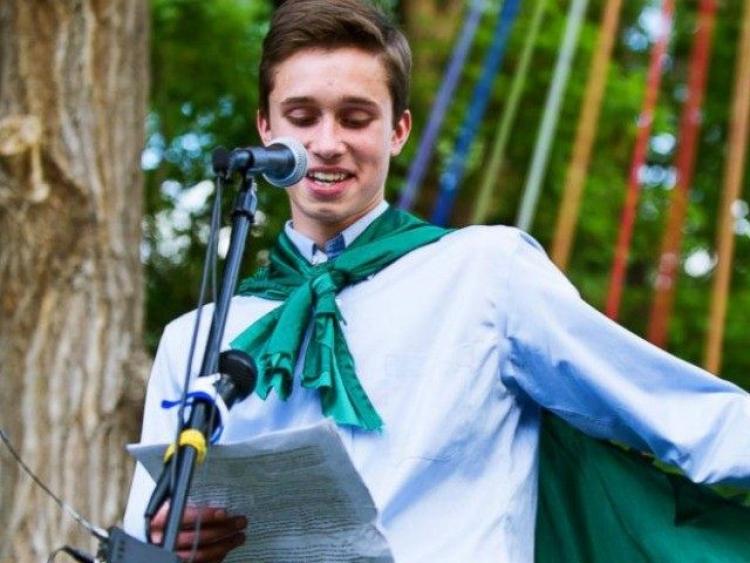
By Bethy Leonardi, PhD; Sara Staley, PhD; and Kevin Welner, JD, PhD
Last month, high school graduate Evan Young was denied the opportunity in his proposed valedictory speech to disclose that he was gay.
According to Twin Peaks Charter Academy's initial statement, the speech — from which Evan declined to remove the sexual identity reference after school officials raised concerns — was blocked "to protect the solemnity of the evening and to preserve and protect the mission of the school." School attorney Barry Arrington justified Buchmann's decision, asserting that graduation is "not a time for a student to use his commencement speech to push his personal agenda on a captive audience, and school officials are well within their rights to prevent that from happening."
Implicit in these statements is the assumption that Evan's gay sexual identity wasn't appropriate to be recognized at a school-sanctioned event and would degrade the ceremony's integrity.
The speech given to Buchmann hasn't been released, but a transcript and video of Evan delivering the speech subsequently, at an Out Boulder event, is available on the Colorado Independent website.
From a legal standpoint, we do not see how this speech could be read as pushing a "personal agenda" unless the reader believes that a gay person's sexuality should be kept closeted. If a heterosexual student mentioned her boyfriend during a valedictory speech, for instance, it is doubtful that school authorities would see that as pushing an agenda. In terms of First Amendment law, that's called "viewpoint discrimination," and it's unconstitutional. Notwithstanding the school's attorney's statement, school officials are not within their rights when they engage in viewpoint discrimination.
Importantly, while the school asserts that the Out Boulder speech was a modified version of what Evan submitted to Buchmann, they've never suggested that Buchmann's objections concerned how Young worded his coming-out statement. Rather, all evidence is that the objection was simply to the fact of the statement itself.
The issues raised here are centrally about good educational practice. Buchmann's rationale, and that of the board, might be attributed to deeply embedded assumptions about what counts as "normal" and "appropriate" in school. To understand the shaping influences of those assumptions requires bringing more than a purely legal focus to bear on this case.
U.S. schools have long been characterized by a profound silence around gender and sexual diversity, which extends to teacher education and leadership programs. Related topics, such as LGBTQ students' safety, haven't been covered in substantive ways. In turn, educators, including administrators, often report feeling grossly underprepared to intervene in anti-LGBTQ bullying and harassment, or to affirm LGBTQ identities in social and academic curricula.
In practice, this silence is reflected in the erasure of LGBTQ history and themes from curricula, or the silencing of young people's expressions of their LGBTQ identities on grounds that such expressions are inappropriate, as Buchmann did. In turn, students like Evan are rarely afforded opportunities to be affirmed in schools, as identities that challenge taken-for-granted norms of heterosexuality are forced to remain cloaked in the invisibility of the closet.
For LGBTQ youth, data consistently report higher rates of bullying and harassment, and consequences for some are dire, including alarmingly high rates of suicide and homelessness. In Boulder County, the 2013 Youth Risk Behavior Survey results are consistent with these trends. For example, LGB or questioning students were over five times more likely to have attempted suicide within the year prior to completing the survey (19.2 percent vs. 3.6 percent for their heterosexual peers).
While suicide data concern worst-case scenarios, the effects of silence extend to all aspects of school and affect students' daily lives. We cannot overemphasize the deleterious effects of such erasure on the youth's physical, social-emotional, and academic well-being. As decades of research on learning as a socially and culturally organized phenomenon suggest, learning and identity are inextricably linked. Students must see themselves positively reflected if they are "to be their personal best," a value Twin Peaks cites.
As professors in the School of Education at CU Boulder, we recognize that the diversity of students' identities is central to cultivating positive school experiences, and that as public institutions, schools (including charters) are obligated to acknowledge and support all students. To honor that commitment, systemic change is necessary; this implicates districts, schools, administrators, teachers and universities. We are committed to preparing teachers to cultivate safe, supportive schools and hope that we can all work together to engender sustained, positive change. As a community, it's on us to make it better now.
Bethy Leonardi is a post-doctoral research associate in the School of Education at the University of Colorado Boulder. She is co-founder of A Queer Endeavor, an initiative aimed to support educators and school communities in addressing topics of gender and sexual diversity in schools.
Sara Staley is a post-doctoral research associate in the School of Education at the University of Colorado Boulder. She is co-founder of A Queer Endeavor.
Kevin G. Welner is an attorney and professor of education policy at the University of Colorado Boulder, School of Education, and he is director of the National Education Policy Center (NEPC), housed at CU Boulder.
View this article as it appears in Times-Call.
Related Faculty: Kevin Welner, Sara Staley, Bethy Leonardi
